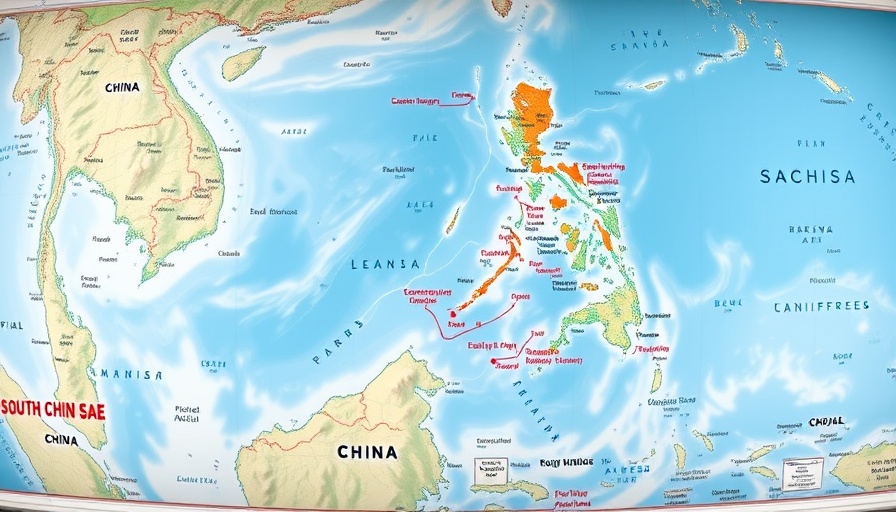
The Significance of the Arbitral Tribunal Ruling
The 2016 ruling by the Permanent Court of Arbitration in The Hague was a landmark moment for international law and the Philippines. It ruled overwhelmingly in favor of the Philippines against China’s expansive territorial claims in the South China Sea, an area rich in natural resources and geopolitically crucial. This decision not only affirmed the rights of the Philippines under the United Nations Convention on the Law of the Sea (UNCLOS) but also set a precedent in international maritime law, emphasizing that treaties must underpin maritime claims.
Echoes of Diplomatic Tension
Nine years later, the implications of this ruling resonate deeply within the geopolitical landscape of Southeast Asia. Tensions have remained high between China and the Philippines, especially in light of continued incursions by Chinese vessels in contested waters. Observers note that while the ruling upheld the Philippines’ rights, the lack of enforcement mechanisms leaves the decision more symbolic than effective. This ongoing tension plays into broader concerns about US-China relations, as the United States has reiterated its support for the tribunal's ruling, positioning itself as a ally of the Philippines in the face of perceived aggression.
Perceptions of Sovereignty and Control
Filipinos are understandably divided on the ramifications of the ruling. For many, the arbitral decision represents a beacon of hope for national sovereignty and the rule of law at sea. However, some critics argue that the Philippines ought to find a pragmatic approach to engage with China economically, despite the ongoing territorial disputes. This dichotomy reflects larger debates within both domestic and international realms about the relationship between economic necessity and the pursuit of sovereignty.
The Role of the United States and International Relations
The United States has remained a staunch supporter of the Philippines in this territorial dispute, underscoring its commitment to regional stability. In March 2023, the US reaffirmed its Mutual Defense Treaty with the Philippines, promising military support in the event of any aggressive actions from China. This commitment has reignited discussions about America’s strategic positioning in Asia, as it strives to contain China’s influence and bolster alliances. Some analysts suggest that continued backing from the US may encourage the Philippines to adopt a more assertive stance against Chinese maneuvers in the South China Sea.
Future Predictions: Navigating a Complex Landscape
Looking ahead, experts predict that the Philippines must balance its diplomatic engagements with both China and the US carefully. With China framing its involved maneuvers as a safeguard of national security, the Philippines faces significant challenges in managing its foreign relations, particularly regarding economic dependencies on China alongside its security ties with the US. Collaborative dialogues may become essential to forge peaceful resolutions while safeguarding national interests.
Concluding Thoughts on the Ruling’s Legacy
The ninth anniversary of the South China Sea arbitral ruling serves as a crucial reminder of the complexities of sovereignty, international law, and diplomacy. For the Philippines, this moment calls for introspection, weighing the benefits of upholding international law against the potential repercussions of defiance. As the geopolitical landscape continues to evolve, staying informed on developments in this delicate situation is vital for not only those within the Philippines but also for global observers keen on understanding the intricate web of international relations.
 Add Element
Add Element  Add Row
Add Row 



 Add Row
Add Row  Add
Add 


Write A Comment